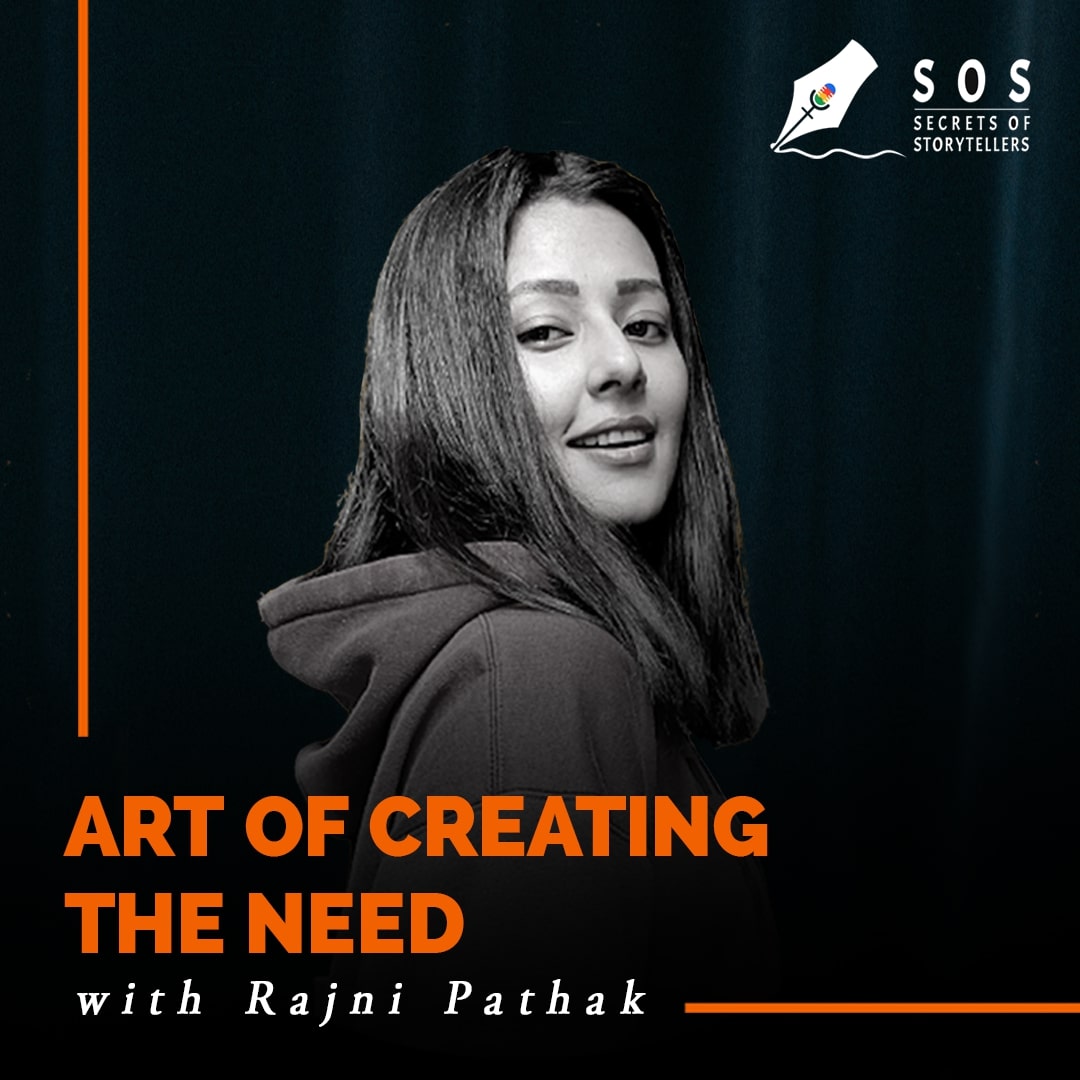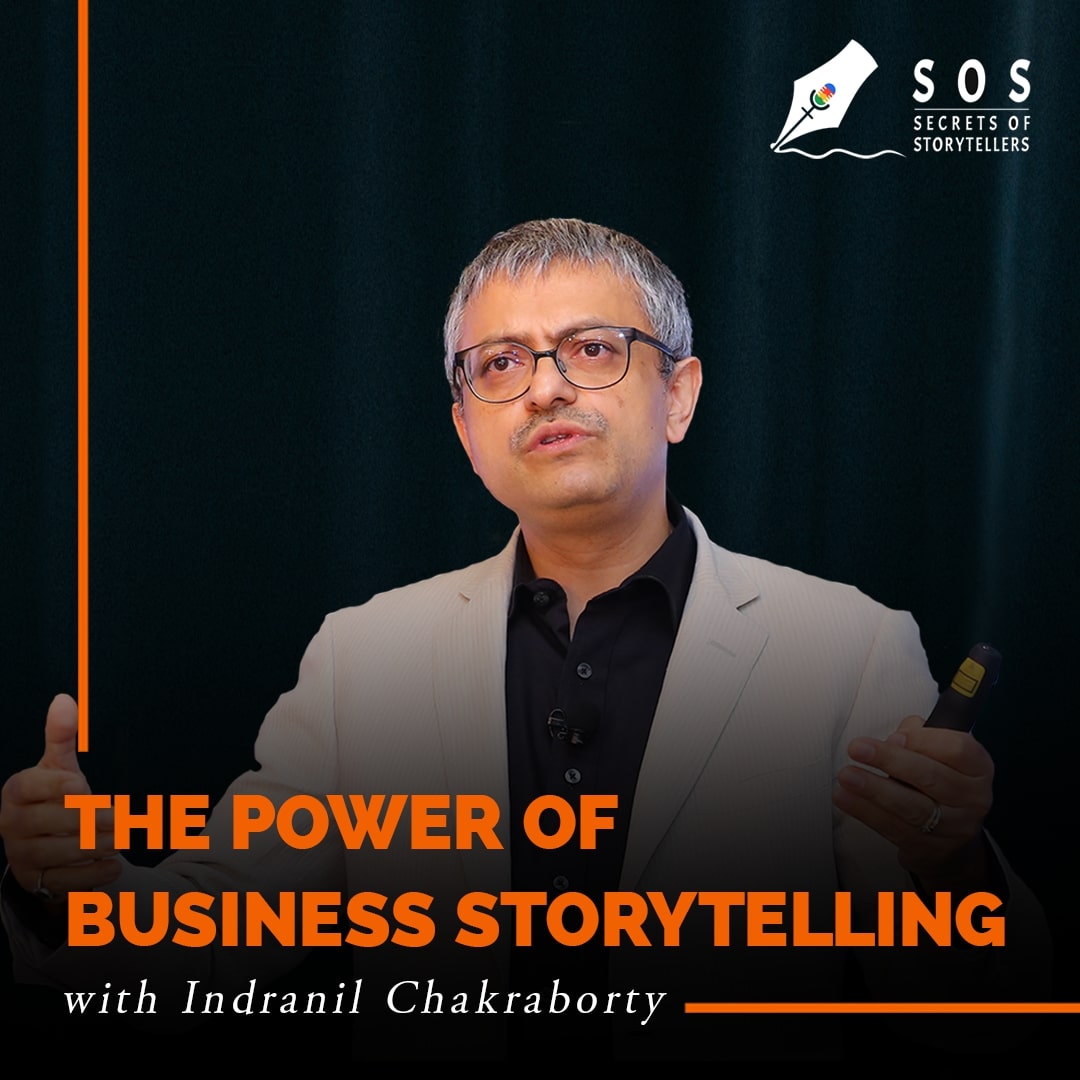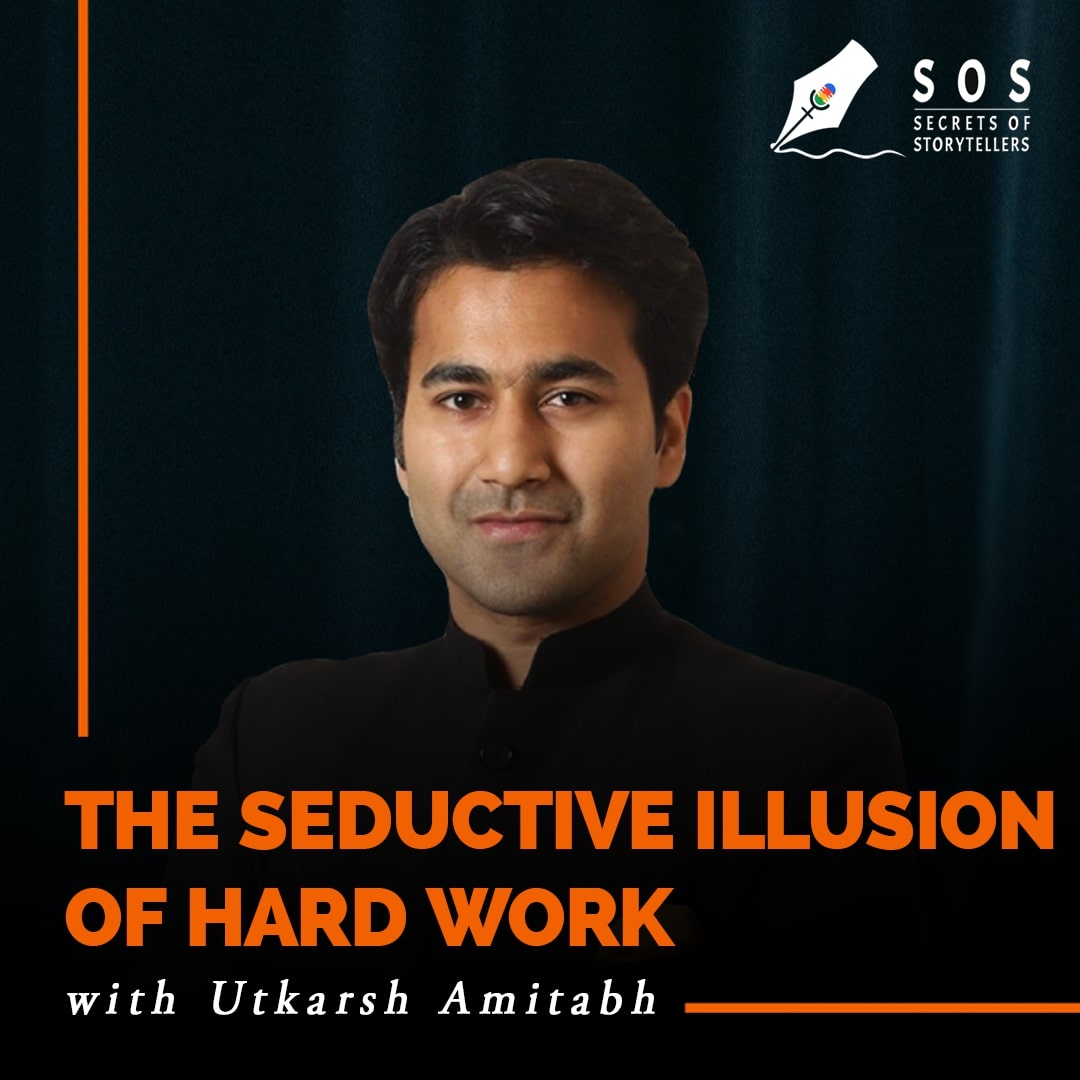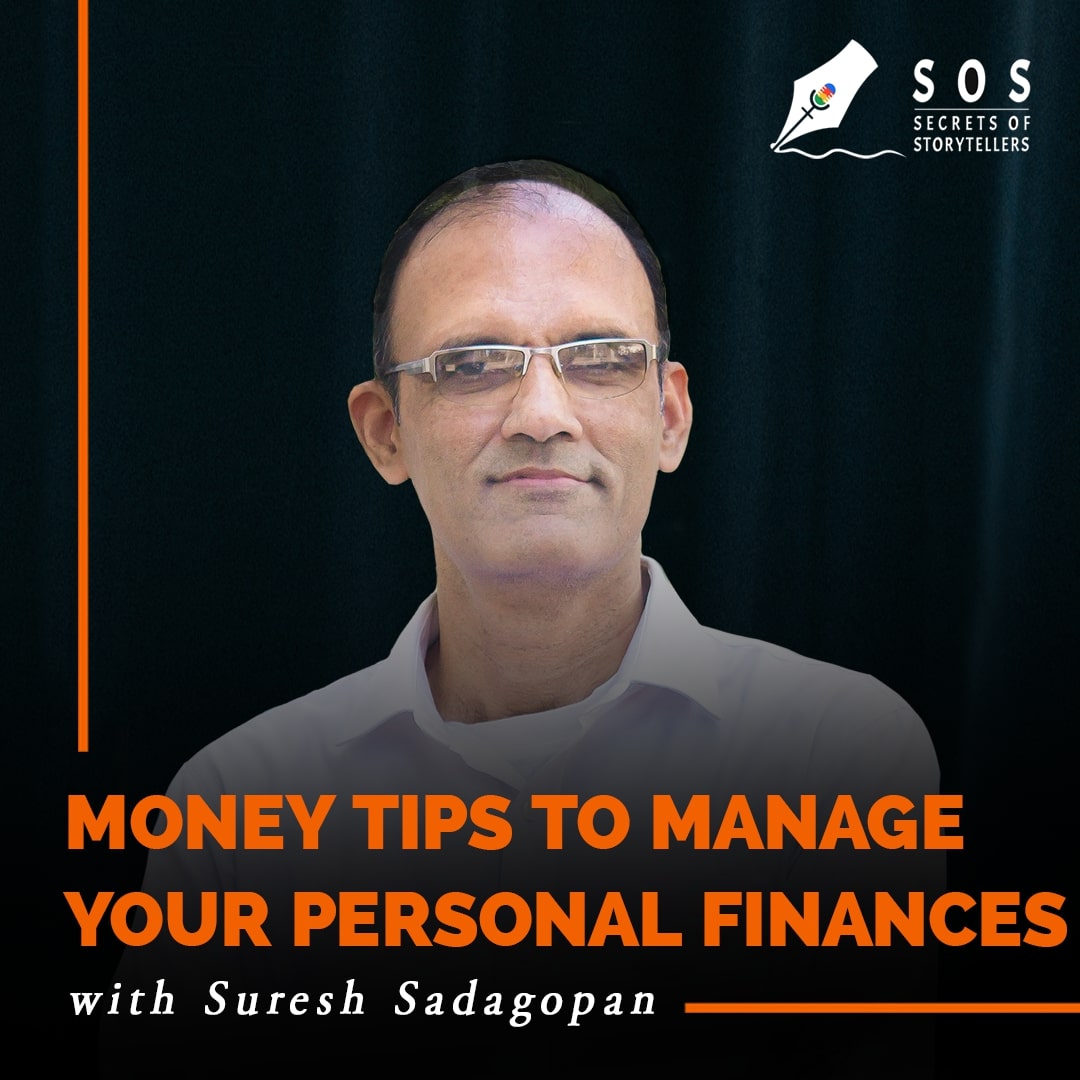Shubham(00:01) -
Needs want and demands are what define pretty much every human being. needs are what some of our basic necessities things which we can't do without warrants are some things which bring more convenience to life or you make your life easier and better with these. While demands are the luxuries we seek in life. But from a marketer’s perspective, if you can create a need for your product or service, your work is done. Come to think of the Netflix and Googles of the world. They have certainly created a need for a good chunk of the homosapiens community. Right. But then how do they do it? We have Rajni Pathak with us who has authored the book creating need, subtitle why marketing is not enough. I agree with her on this. You know, marketing is a combination of both to bring more to the table.
Shubham(00:56) -
Hello, and welcome to secrets of storytellers. I am Shubham Agarwal. Now this is a podcast where we interview best selling business authors share concepts, interesting stories, and secrets from their authentic journeys. Hello, Rajni Welcome to secrets of storytellers. How are you?
Rajni(01:14) -
I'm good. Hello. Shubham. Thank you so much for inviting me to secrets of storytellers. I'm doing very well. How are you?
Shubham(01:20) -
I'm great. Thank you so much. I'm doing great. And looking forward to a great session with you.
Rajni(01:25) -
Same
Shubham(01:27) -
So actually, how was the lockdown for you? Let's start with that you started digital seed in April or May if I'm not wrong. Tell us a little bit about that.
Rajni(01:35) -
Right. So digital seed was formed by me and my best friend of 14 years in April. Okay. However, we started operating in June. So the lockdown happened exactly 12 days before we became fully functional. And that was the moment when we decided that we had to trust our guts and go for it. Right, right. So now that I think about it, the longtown had a huge positive impact on shaping the pillars of digital see.
Shubham(02:01) -
That's great. In fact, as a matter of fact, a secret of storytellers was also started in the lockdown. Oh, wow. So yeah, so there's something in common there is going great. We released 27 episodes. And we've received some great response from both the guests like you and the listeners as well. Right. Right. So you've been writing screenplays and various forms of stories for quite a while now, I think. Right? And how did the idea of the book creating need come to you? How did authoring a book come into picture?
Rajni(02:32) -
So like I said, I wrote the book during the lockdown phase, I had enough time to find really, you know, to really finish the things that I had started during this period. And even before that way, and the reason why I wrote the book was actually two-fold. So the first point was that I was constantly being approached by people who didn't understand how to sell on digital platforms. Okay. And you know, after the lockdown happened, suddenly everything was going across, you know, digital platforms. Yeah. And everyone wanted to sell on digital platforms, because that was convenient, right? The second reason was that these very people, they had no clue why marketing was not doing any magic to the sales. So, “creating need”, as the title suggests, talks about why there needs to be a pre-existing market for a product or service or a skill. And if not, then how can one inject this need before jumping into marketing? Right?
Shubham(03:26) -
So you developed a lot of content for helping brands and businesses with their marketing campaigns, right? . Did you experience yourself that in spite of aggressive marketing, the appearance didn't fly?
Rajni(03:38) -
Oh, many times, like, even when the products so great? Oh, so like, for example, if today I decided to sell the lamps, right, right. But in May or June in India, it will not sell, right, simply because there wasn't a demand or need for it. So sometimes marketing is initiated to create demand. But if it doesn't fall in lines with the need, then it won't work. Right. So, the best example that I can think of now would be the growing need for face masks during the pandemic, right. So many new start-ups and companies started aggressively marketing about the facemask and it only sold because there was a pre-existing need for it make sense? Now in the situation has become a tad bit normal. I would say a big brand are back to rule the space simply because they can bear the losses in case the products don't sell.
Shubham(04:26) -
Right. Yeah, that really makes sense. So but then do you believe a need can be created for you know, any or every product or service?
Rajni(04:34) -
Absolutely. And like, for example, when direct marketing or for liquor was banned? Yeah. So, companies are switched to surrogate advertising. Mm hmm. But like, this is about marketing. So, coming back to creating need early. Suppose I have a small sanitizer production start-up that manages to produce like around 100 bottles per day. But since the demand for sanitizers has dropped, I only sell 30 bottles per day now that the situation is slightly under control, right? So, in this situation, how do I create a need again, like I can obviously not start my own virus, right? So, so I so I do so by understanding the facts of the virus spread its longevity and the risks and create a marketing campaign to educate the public how they need to be cautious all the time, they by constantly reinforcing by product name and service. In this case, I am highlighting with addressing the problem first, instead of constantly bombarding the audience with my brand name.
Shubham(05:35) -
Right, right.
Rajni(05:36) -
So it's just a tiny example, like, there are many scenarios and sub layers to it. But this is just a gist that I'm trying to give out.
Shubham (05:44)
- So you really got to understand the reasons behind creating that product, while also understanding the consumer. Right?
Rajni(05:50) -
Right. Absolutely.
Shubham(05:52) -
So I'm guessing that you know, you take this line of thought for every marketing campaign that you create, where they do see it for other businesses that you helped. Can you share some pointers for the process? How do you go through the process?
Rajni(06:04) -
Oh, yes, definitely. So, whenever we start, we are like designing a campaign, we keep in mind these three things. So, number one is time. And by time, I mean that, whether it is the right time to inject the need, for example, a sale during festive season will always work well, right. Because we will, who can spend, have their office holidays in line. And even if they don't, they are. So, there are certain traditions and customs that require participation of some kind. Yeah. So now number one is time number two is magnitude, magnitude is like we keep our expectations very realistic and have a cap on how high a certain campaign can grow by itself. If it exceeds these expectations, well, that's amazing. But if it doesn't, then we work around the market again, right. So, this is the second point, basically not having really high expectation and thinking that your products will fly every time you have you put it on that virtual shelf. So, the third thing is competition. So basically, test the field and see who is already there. Like if I have to sell crackers for Diwali , I need to market it in a way that people come to buy from me and not my competition. Yeah. So, creating need on a broader perspective is not just for something that no one has heard of before. It can also be of basic commodities that already has a pool of competition ready. Right.
Shubham(07:27) -
Great. And we see a lot of content being you know, this lot of content being bombarded on us on every social media platform, everywhere. In fact, I don't know how but even if you talk about something, you start getting ads about that and it's really scary, but what is one mistake that you generally see the new age marketers make with their content these days?
Rajni(07:53) -
Um, see, the only mistake I see is that in the process of becoming too creative, the messaging is completely lost or blurred. And, you know, at the end of the day, you're selling a product, right? So why not work around a simple creator with clear messaging instead of becoming Christopher Nolan and making Inception? Right? You are showing your creativity that's fine but Then why'd Why do companies hire copywriters because they want to make crisp copy short copies that you know, give out certain messaging that you must have seen so many advertisements on your television set. You know, it's about a mother son to or a family and they are, talking and crying but the ad can about desi ghee. So, while it is okay, it's okay to play with emotions, but don't get lost.
Shubham(08:51) -
Right. Great. That's a great question. Don't get lost and don't try to certainly emulate Christopher Nolan.
Rajni(09:00) -
Don't do that if you like if you have that. You know, but there's always a stage. Yeah. Oh, then you have to see the size of the stage key. Okay. This is it.
Shubham(09:09) -
Right. Okay. Great. So we have a new section to our podcast each episode. And that's rapid fire. Oh, yeah. So we're gonna go into the rapid fire. I think you know the rules. pretty well. Yes. Yeah. Yeah. Alright, so what is the book done for you?
Rajni(09:26) -
Oh, the book has personally helped me or look beyond products are something that has to sell are as things that they have to you know, they have to sell absolutely sell. And it has allowed me to see it as a link to a chain of the commercial market. So, every every product that you see or you come across while you are on Facebook or on Google is actually a small link, and the chain is actually huge. So, you by buying that product or by taking any kind of action, you're actually becoming a part of that change huge consumers chain
Shubham(09:59) -
Right? What book are you reading these days?
Rajni(10:01) -
Oh, I'm currently reading a passage to India. It's by Ian Foster.
Shubham(10:07) -
Oh. wow.
Rajni(10:08) -
So it was published in 1923 or 24, if I'm not mistaken, and I'm reading it as a part of a study for a fiction novel that I'm developing over. So I need that time frame basically.
Shubham(10:20) -
SWell, that's wonderful. So you so you have also told us what are you doing next? Yeah.
Rajni(10:25) -
Yeah
Shubham(10:26) -
Great. Right. And the next one is interesting boys, a number of trading cards and sneakers that you have, I must tell my listeners that Rajni has a hobby of collecting trading cards and sneakers. So yeah, what is that number?
Rajni(10:40) -
Okay, so, it's a little hard to explain how trading cards work, you know, so I'm basically into collecting vintage trading cards, and I have a Pokémon Trading Card. Okay, so trading cards based, next, sports, you know, or winter sports, right to trading cars based on that theme. And Pokémon Gods because well, they just remind me of my childhood. So as individual cards that are worth a lot, at least emotionally, I have 37. And as for sneakers, I have 16 pairs, all of them close to my heart, and I really wear them. Wow, yeah.
Shubham(11:17) -
What did you do with them? In the lockdown though?
Rajni(11:20) -
I did so many pictures, I said that I actually wore those sneakers when I was at home, okay, because I was always worried, you know, creases protecting you.
Shubham(11:30) -
That's the thing.
Shubham(11:31) -
That's lovely. And how did this always start? If I may ask
Rajni(11:34) -
So basically, I started the reason I started, you know, earning only was because I wanted to, you know, get these really good Nike basketball sneakers. And they were launched in India two years after they will launch in the UK. But, you know, I did not have the guts to tell my parents or asked my parents to buy those sneakers for me. So that is how I thought, you know, I will just, you know, find a way to earn and become a freelancer or what not. So that is how I got on the internet found out about this amazing freelancing website. That was ODesk Oh, now it's so Upwork. Yeah. And so that's how it started. So, my love for rose sneakers grew from there. And it also introduced me to this whole new era of internet that I just started
Shubham(12:23) -
That's lovely. Great. So actually, this brings us to the last section of the park, right, which is a common section across all my episodes. Getting away interesting one personally close to my heart. Since you know, we call the show secrets of storytellers. We want to ask you one secret about the book, or about, you know, the journey while you were writing the book that you've never shared with anyone? Until today.
Rajni(12:47) -
Right Okay, so that just justifies the name of the show. Yeah, today. So, um, when I was writing this book, I was in a headspace where I was juggling 10 things or thoughts at once. There was an insecurity. When it came to career, there was a feeling of uneasiness since my family was away. And Mumbai was totally shot. So, I was in Mumbai. And in that headspace, I got a third person view of the whole situation. So instead of viewing the situation, from my point of view, I could view it as a whole. So, both in a micro and macro level, and only when I was, you know, only when I assess the situation, I could actually see how to you know, how no product or service is immune to any kind of natural
Shubham(13:37) -
Eventually
Rajni(13:39) -
Yeah, exactly. So, I started writing how I would do things differently. And those tiny pointers became solid bullet points, which then became a handy 33-page book, right? So, the secret that no one knows is that I was in no space to write a book. So no, everyone is gentle. Every good bestselling author, they have this method, they, you know, they go on a vacation, they think about the topic.
Shubham(14:02) -
They have a space. Yeah.
Rajni(14:04) -
Right. So, this this was just like, you know, like, the book suggests creating natives it was that it was the name of the author, right? So those tiny points, they became a book and I didn't try to stretch the book. No, just thinking you know, you know, a book needs to be like, for example, a novel is generally 40,000 words. So that's the limit. That's the least number of words one should have to call the work a novel, right? I didn't limit myself to that I thought let's be to the point because you have so many books out there that talk about almost everything but not the point. So, I was looking for so many books I had so much of time, you know, in hand during the lockdown. So, I wanted to go through some books, basically self-help books because I was in such a negative headspace. So whichever book that my friend suggested, or my friends were, you know, kind enough to, you know, lane me, I would find that Those books talked about everything except the point like that they were trying to make. So that was something I was really, you know, I became really irritated because I was trying to find a solution. Right. So, after a while, what I tried doing was I would skip to the end and see if there is the, you know, main point at the end of the book, but even then, it didn't help.
Shubham(15:21) -
Great. I think I love the process that you took to write the book. And I think the outcome was great. You hardly hear of books, which are crisp, and, you know, so short. But probably this is a new era in the book’s world. It's a great
Rajni(15:36) -
I have read even books, even writers are now you know, making they have these, even they are coming up with their own podcast. So you know, you have you can that you can actually listen to them read their own book.
Shubham(15:49) -
Right. Yeah, a lot of you know, Amazon has this amazing audible app
Rajni(15:53) -
Right.
Shubham(15:54) -
Which is all about audible books. So yeah, the world is moving towards that I think
Rajni(15:59) -
Thank God.
Shubham(16:01) -
Great, thank you so much, Disney for this for your time. I hope you enjoy the session. We loved it.
Rajni(16:07) -
I loved the session. Thank you so much for having me.
Shubham(16:10) -
Great. Wonderful. Thank you. And thank you to all the listeners. This is Shubham signing off until the next secret and the next storyteller. Bbye.










